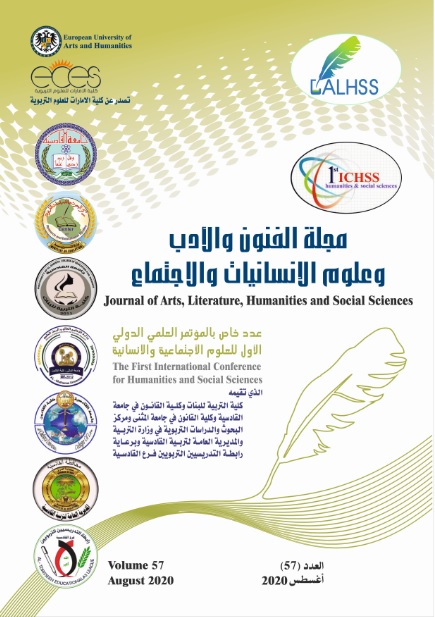The Administration's Role in Punishing Violators of the Curfew in Iraq
(Corona pandemic as a model)
Abstract
The administration has a distinct position in achieving public order and striving to protect the freedoms of individuals, and the function of administrative control is a manifestation of the public authority in imposing public order through administrative control bodies, and with the importance of the administrative control authority, it has been subject to the principle of defining and restricting and has set limits and controls both in normal circumstances Or exceptional, therefore the administrative control authority interferes in imposing a curfew and sacrificing the freedom of individuals to move in order to maintain public order, and since the emergence of the Corona pandemic, countries have taken many precautionary and preventive measures to protect citizens from this deadly epidemic even if it benefits adherence to quarantine and staying at home Throughout the specified period, however, the criminalization of the act of people leaving their place of residence does not have a legal basis, and the punishment of violators of the curfew must not be in contradiction to the constitutional principle (no crime or punishment except with a text), and the issue of the limits of administrative control over freedom of movement is extremely important because it addresses They are extremely sensitive and accurate, and this is what we embraced from the strange phenomenon that is represented in the permanent conflict during the Corona pandemic crisis in the semi-permanent conflict between the citizen and the administration.
References
2. الفياض، ابراهيم طه. (1998). القانون الاداري، نشاط واعمال السلطة بين القانون الكويتي والقانون المقارن ، الكويت: مكتبة الفلاح.
3. الدليمي، ماهر فيصل صالح. (1947). شرح القانون الاداري، بغداد: مطبعة المعارف.
4. القحطاني، محمد عبد.(2005). الضبط الأداري في دولة الامارات العربية المتحدة: بلا دار طبع.
5. بكر، عصمت عبد المجيد.(2007). مصادر الالتزام في القانون المدني ، بغداد: المكتبة القانونية.
6. حسن، علي السيد.(2009). اسس وقواعد القانون الاداري، القاهرة: دار الكتب الحديثة.
7. خلف الله، شعبان. (1971). عالم الوبائيات في مجالات صحة الانسان والحيوان ، بيروت: دار الكتب العلمية.
8. زنكنة، عدنان.(2011). سلطة الضبط الاداري في المحافظة على جمال المدن وروائها، ، بيروت: منشورات الحلبي الحقوقية.
9. شطناوي، علي خطار . (1995). القضاء الاداري في نشاط الادارة ووسائلها، الاسكندرية: دار الجامعة الجديدة.
10. عبد الرحمان، تقيدة. (1990). نظرية الظروف الاستثنائية في النظام القانوني الجزائري، جامعة عنابة: رسالة ماجستير معهد العلوم القانونية والادارية.
11. عبد الباسط، محمد فؤاد.(2005). القانون الاداري، مصر: دار الجامعة الجديدة.
12. عمر، عدنان.(2004). مبادئ القانون الاداري ، مصر: دار الجامعة الجديدة.
13. علي ، سعيد السيد.(2009). أسس وقواعد القانون الاداري، القاهرة: دار الكتب الحديثة.
14. علي الميت، ابو اليزيد. (1984). النظم السياسية والحريات العامة، الاسكندرية: بدون دار طباعة.
15. كنعان، نواف. (2008). القانون الاداري، عمان: دار الثقافة للنشر والتوزيع.
16. كامل، مصطفى. (1947). شرح القانون الاداري، بغداد: مطبعة المعارف.
17. معلوف، لوئيس.(بدون سنة النشر). المنجد في اللغة، بيروت: مطبعة كليرك.
18. محمود، ساجد طه.(2014). حظر التجوال واثره في العبادات ( العراق انموذجا)، العراق: مجلة كلية العلوم الاسلامية.
19. منصور، احمد جاد. (1997). الحماية القضائية لحقوق الانسان حرية التنقل والاقامة في القضاء الاداري المصري وفقا لأحداث احكام محكمة القضاء الاداري والمحكمة الادارية العليا والمحكمة الدستورية العليا، القاهرة: دار ابو المجد للطباعة.
20. نجيب، علي . (2017). سلطات الضبط الاداري في الظروف الاستثنائية، بيروت: دار السنهوري.



